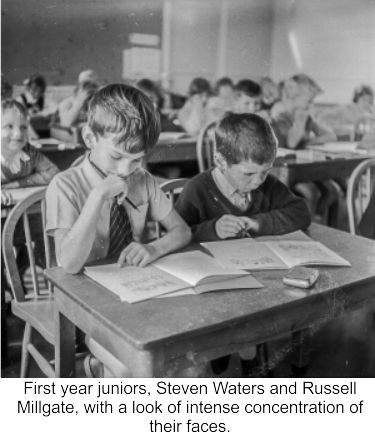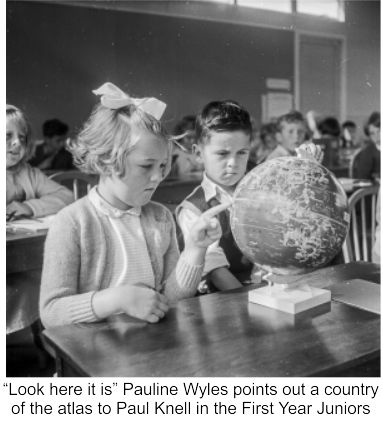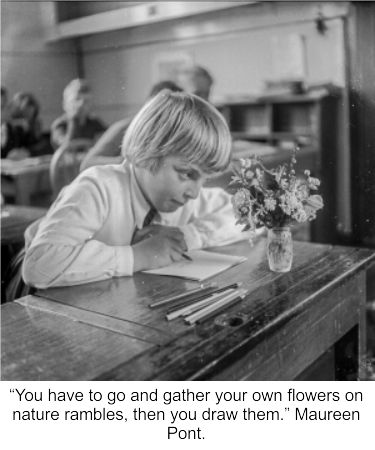Teynham Primary School
Just over 50 years ago Teynham was expanding rapidly with lots of new houses being built and nowhere was the impact being felt more than at school. The East Kent Gazette decided to visit Teynham Primary School for a feature on how well it was coping. This article is from the edition of September 29th, 1961.
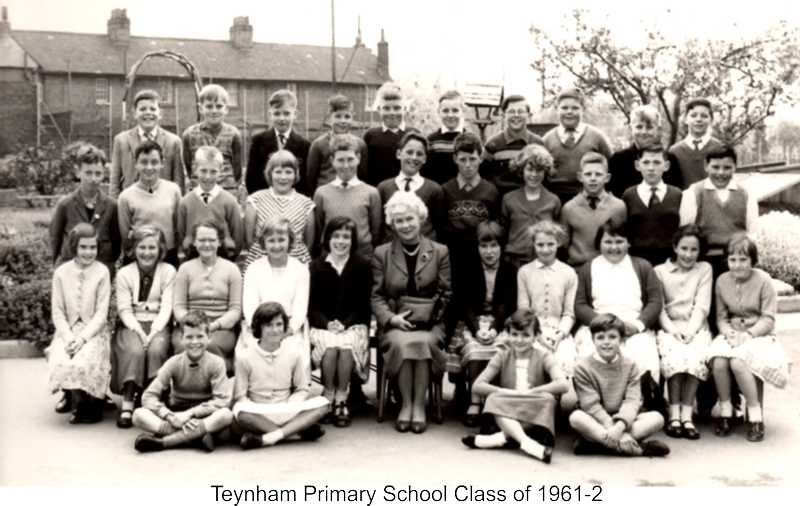
Children have been back at school for a few days and the very young ones are just beginning to get the idea that they have another 10 years of classroom work ahead! It has been a trying time for children, parents and teachers alike, while for the education authorities the ‘bulge’ in the number of school entries presents a constant headache. There are usually more children entering than leaving and the extra numbers have strained accommodation to the limit in this part of Kent.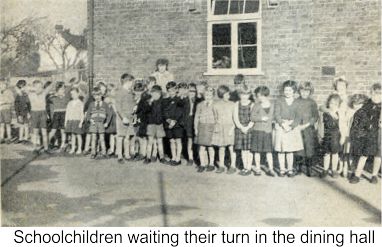
An East Kent Gazette photograph feature team visited Teynham, where the primary school serves an area of new estates, with a rapidly increasing population, to find how they are coping with the new intakes of pupils.
Last term, accommodation was strained and the school hall had to be converted into two classrooms; but three new classrooms have been built during the school summer holidays and for the next few terms, at any rate, the problem would appear to have been solved.
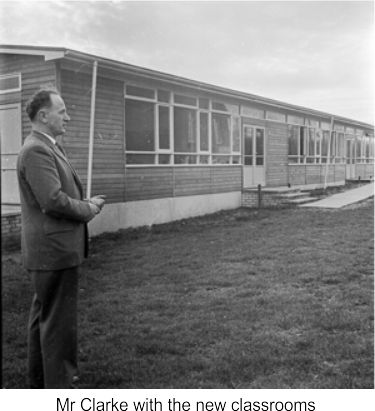 Looking to the future, however, Headmaster Mr Harold Clarke has doubts whether even the enlarged school will meet the needs of growing villages. “I am expecting another 50 pupils by next July, for the village’s housing development is still going on,” he said. “With these numbers we could just about manage without using the hall. Then the following year we will have more children again and we will either have to use the hall or have more classrooms built.”
Looking to the future, however, Headmaster Mr Harold Clarke has doubts whether even the enlarged school will meet the needs of growing villages. “I am expecting another 50 pupils by next July, for the village’s housing development is still going on,” he said. “With these numbers we could just about manage without using the hall. Then the following year we will have more children again and we will either have to use the hall or have more classrooms built.”
The original school building dates to 1849 and a second storey was added in 1871. There are now eight classrooms for 250 children and a large hall used for school meals and assemblies.
Teynham Primary School is a church school, but controlled. There are still some links with the church, however. The vicar takes religious instruction and services are held at Christmas and on special occasions.
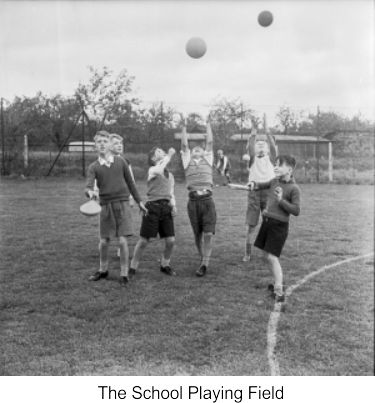 Among Teynham’s many advantages over other country schools is its fine playing field, where a football pitch is marked out. There is also room for a netball pitch for the girls and a garden of which the children are very proud.
Among Teynham’s many advantages over other country schools is its fine playing field, where a football pitch is marked out. There is also room for a netball pitch for the girls and a garden of which the children are very proud.
How do the very young children accept their new environment at school? Mr Clark told our reporter: “On the whole they accept it very well. They co-operate with us and it makes things so much better all round.”
Children are always amusing in their antics and attitudes and Mr Clarke tells of one Canadian child with a pronounced accent. “This intrigued all the other children,” he says, “and that particular young man was the centre of attention in school for months. But he is gradually losing the accent and becoming Kentish spoken. It was the same with a lad who moved from Newcastle. He had a strong brogue, but he again is losing it gradually and speaking more like us. But at first the children were enthralled.”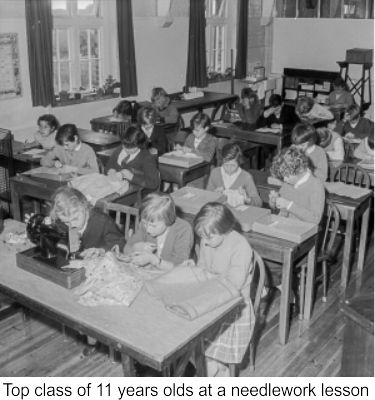
The basic subjects of all schools are, of course, the ‘three Rs’ – reading, writing and arithmetic – but here there is handiwork and craftsmanship of all kinds, country dancing and radio broadcasts. They enter the junior schools’ music festival each year, there is a football team under way, and outings to local places of interest are organised.
The children all play their part, in work or play, to the utmost of their ability.
What success has the school had in scholarships for higher education? “I feel that those who have been capable of going to grammar school or technical school have gone,” says Mr Clarke. “I do not believe that a school’s sole aim should be to get a child into a secondary education school, such as grammar or technical. Children should be worked according to their capabilities and their educational needs.”
Mr Clark has been headmaster for five years, before which he was teaching at Whitstable, and his wife is the school’s part-time secretary.
“I sincerely hope and believe,” says Mr Clarke, “that when this generation grows up there will not be so much trouble for them as we seem to be having from the present-day teenagers. But perhaps the youngsters are not to blame, for they have grown up in a lot of disturbance. I think a lot of the trouble is also due to the conditions in which they live.”
Compiled from material
kindly provided by John Tilling.
Original East Kent Gazette pictures kindly provided by
Sittingbourne Heritage Museum.
